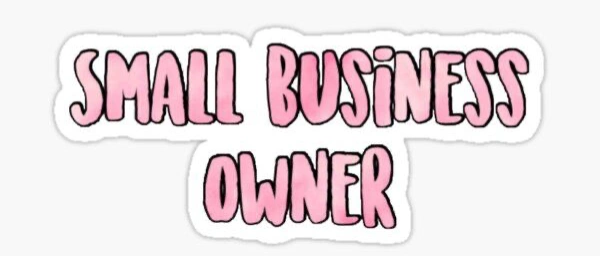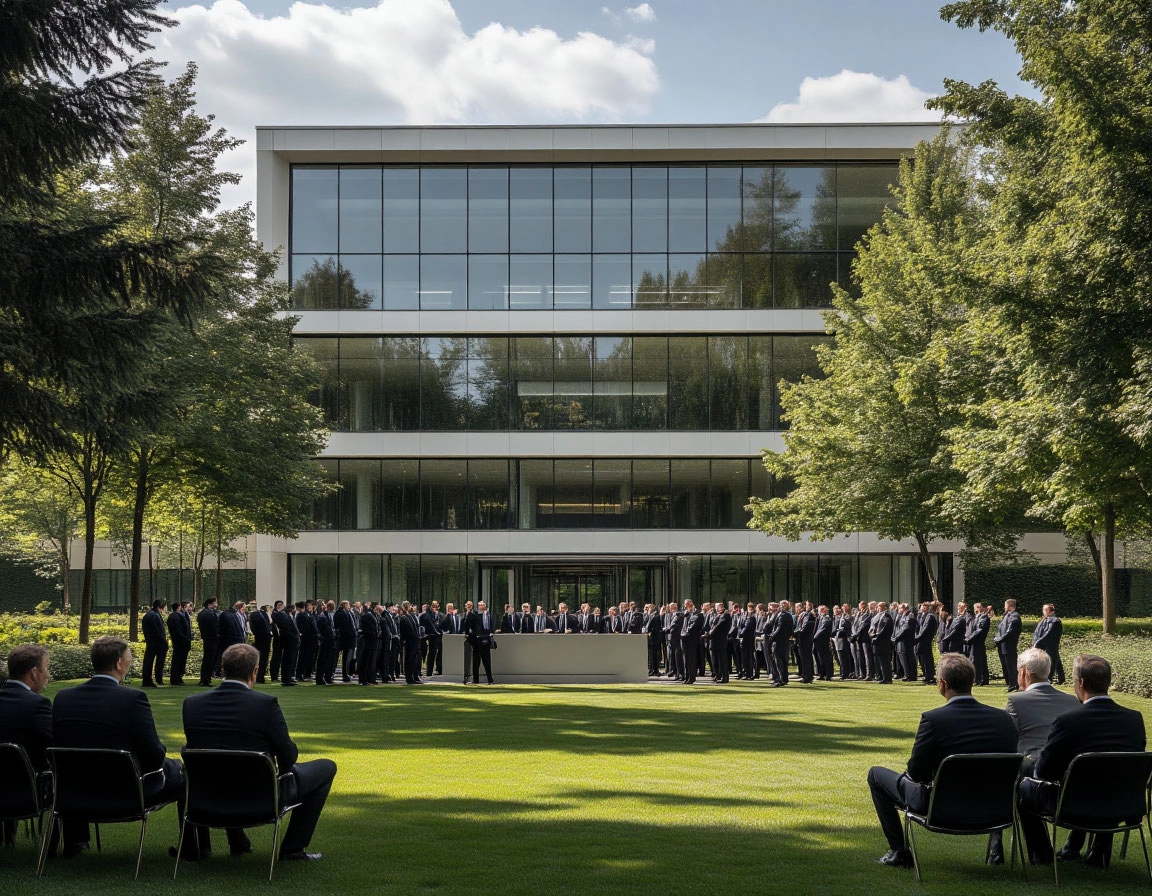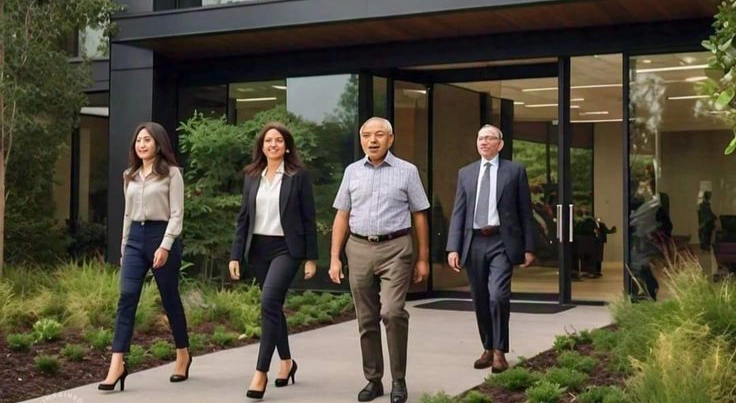Management Posts on Crowch
In recent years, the world has come to recognize the value of local initiatives. Small Business Saturday, held on the last Saturday of November, has become a symbol of this awareness. On this day, millions of people across different countries choose small shops, cozy cafés, and creative workshops instead of large retail chains, turning the day into a true celebration of entrepreneurship.
🛒 More than shopping
Small Business Saturday is not about discounts or chasing deals. It’s about choosing quality, uniqueness, and a human touch. Every purchase at a small business is a gesture of support, recognition, and respect for the work of those who enrich our communities.

🌱 Small businesses = big change
Each entrepreneur contributes to the growth of their city or neighborhood. Small businesses give character to streets, create jobs, and strengthen local economies. Money spent locally often stays in the community — supporting schools, cultural projects, and charitable initiatives.
❤️ The human connection
The magic of small businesses lies in their atmosphere of trust and warmth. Owners and staff know their customers, remember their preferences, and greet them with genuine care. It’s a personal touch that big retail chains can never replicate.
🙌 How can we take part?

- Shop at a local store or market.
- Support a workshop or creative space.
- Share your favorite café or shop with friends.
- Promote small businesses on social media.
These small actions give entrepreneurs confidence and motivation to keep moving forward.
✨ A celebration of hope
Small Business Saturday reminds us that behind every storefront is a person, their dream, and their hard work. By supporting small businesses, we choose a world that values individuality, care, and community.
Small Business Saturday is a celebration of a future where success is measured not by size, but by heart.
Small Business Saturday is celebrated each year on the last Saturday of November, right after Black Friday. First launched in the United States in 2010, it was created as an alternative to big retail sales and as a reminder of the importance of local shops, family-owned businesses, and independent entrepreneurs. These businesses form the backbone of the economy and add character to our neighborhoods.
🌍 Why does it matter?
Small businesses are more than just stores. They are bakeries, coffee shops, bookstores, ateliers, craft workshops, and family restaurants — places that bring warmth and individuality to our daily lives. They create jobs, support communities, and preserve traditions. By shopping local, we are investing in our neighbors, our friends, and the future of our cities.
📈 Impact on the economy
Research shows that every purchase at a small business has a multiplier effect: money stays in the community and helps it grow. Unlike large corporations, local entrepreneurs often source from nearby producers, reinvest profits into the community, and provide a personal touch that makes shopping a unique experience.

💡 How can we help?
Supporting small business is easier than you think:
- Buy holiday gifts from local shops.
- Choose neighborhood cafés and restaurants.
- Share your favorite spots with friends or leave online reviews.
- Promote local brands by sharing their posts on social media.
Even a small purchase can make a big difference.
❤️ A day of gratitude

Small Business Saturday is more than just a shopping day — it is a day to say thank you. It is a chance to appreciate the hard work, creativity, and dedication of those who run their own businesses to make our communities vibrant and diverse.
When we support small businesses, we support the beating heart of our communities.
📈 Rethinking AI for Business: Less Complexity, More Efficiency
In the ever-evolving world of AI-driven business optimization, companies are constantly looking for smarter ways to make decisions — without adding unnecessary technical complexity. Traditional reinforcement learning (RL) techniques have proven powerful, but they often come with a hidden cost: computational overhead and instability caused by their reliance on critic networks. Group-Relative Policy Optimization (GRPO) offers a refreshing shift. Originally successful in large language model alignment, GRPO brings a critic-free, cluster-based approach to reinforcement learning. It replaces heavy critic networks with lightweight group-and-action baselines, making training faster and more efficient — a huge win for businesses deploying AI in real-time systems. This article expands on earlier work exploring clustered RL policies for business applications and investigates how GRPO can be adapted to deliver personalized promotions and smarter decisions in the real world.

🤹 The Business Challenge: Many Goals, One Policy
Unlike traditional AI research problems, real-world businesses don’t have the luxury of optimizing for a single metric. A company might aim to:
• Boost revenue
• Personalize user experience
• Maintain fairness and transparency
• Stay consistent with brand voice
These goals often conflict, yet must be handled simultaneously by a single decision-making system. This is where most RL frameworks struggle. Standard models like Proximal Policy Optimization (PPO) tend to optimize for one dominant objective and rely on critic networks to evaluate every action — a setup that introduces delay, instability, and significant resource consumption. GRPO sidesteps these issues elegantly by leaning on group-relative comparisons within customer clusters. Instead of comparing every individual to an absolute critic estimate, the system learns by observing how similar individuals respond to actions, which dramatically simplifies the reward structure.

🧠 Why Critic-Free Learning Matters
In classic RL setups, a critic network estimates the expected value of actions, guiding the agent’s learning. But in business contexts, especially those using offline customer logs, critic learning becomes noisy, expensive, and sometimes outright misleading. GRPO removes the critic entirely. Instead, it groups users based on shared attributes (demographics, behavior, engagement level) and tracks the relative performance of actions within each group. This “in-group comparison” serves as the signal for learning — no critic needed.
Benefits include:
• Lower variance in policy gradients
• Faster convergence
• Reduced compute requirements
• Better alignment with human-level goals, like fairness across segments
These features make GRPO a strong candidate for practical, production-grade decision engines that need to run on constrained infrastructure without sacrificing performance.

🛒 Case Study: Personalized Promotions at Scale
Let’s take an e-commerce scenario: a company wants to serve personalized offers to users, balancing conversion rates with customer lifetime value and brand equity.
Traditional RL might recommend deep personalization for every individual, but that often leads to overfitting or inconsistent messaging. With GRPO, users are first clustered — say, by purchase history and browsing behavior. The algorithm then compares offer performance within each group, learning which promotions outperform the others without relying on an external critic model.
This creates a system that:
• Learns faster using real-world data
• Generalizes better across user segments
• Maintains a coherent brand experience
Importantly, this strategy works even offline, using historical logs — making it ideal for companies without access to real-time interactions.
💼 Everyone Wants the Crown — But Few Want the Weight
Let’s be honest: in the startup world, everyone wants to be the CEO. Ask a room full of founders, and you’ll find very few who don’t dream of holding that title. It represents power, leadership, and success. It’s the CEO who gets featured in TechCrunch, who’s invited to speak at big-name conferences, who ends up on magazine covers.
No matter how many brilliant co-founders are behind a company’s technology or product, the CEO becomes the face of the brand — the hero in the story. So, it’s no surprise that ambitious founders gravitate toward that role. It feels like the logical next step, the ultimate validation.
But here’s the truth most people don’t talk about: being CEO isn’t just about the glory — it’s about the grind.

⚙️ The CEO Role Is a Job — Not Just a Title
A startup CEO wears every single hat in the early days. You’re the head of sales, product, HR, fundraising, culture, operations — all while trying to maintain the illusion that you have everything under control.
You’re the one taking investor meetings while still fixing bugs in the product. You’re negotiating contracts, chasing unpaid invoices, managing team tensions, and thinking two years ahead — all in the same week.
It’s constant pressure, with no playbook and no safety net. One wrong move, one hiring mistake, one missed funding cycle — and everything you’ve built could vanish.
And here’s the kicker: most of this work is invisible. The flashy interviews, big LinkedIn posts, and conference panels? That’s 1% of the job. The other 99% is quiet, lonely, stressful work that rarely gets applause.

🧠 The CEO Mindset: Making Hard Calls Daily
Being CEO means constantly making high-stakes decisions with incomplete information. You’re the person everyone turns to when things go wrong. When there’s a tough conversation to be had, you’re the one who has to lead it. When someone needs to be let go, you do it — even if you hired them.
You’ll have to say no to people you care about. You’ll disappoint your team at times. You’ll second-guess yourself more than you ever imagined.
The emotional toll is real. It’s not just about working long hours — it’s about carrying the weight of every decision, every risk, every payroll cycle.
And if the startup fails? That’s on you.

💡 But Here’s the Flip Side: It Can Be Worth It
Yes, it’s a grind. Yes, it’s emotionally taxing. But for the right kind of person — someone who thrives in chaos, craves responsibility, and finds meaning in building something from nothing — being CEO is deeply fulfilling.
You get to shape culture from day one. You get to build a team around your vision. You make the calls that shape the future. And when it does work — when you raise that round, ship that product, or hit profitability — it’s electrifying.
But here’s the key: you have to want the job, not just the title.
You have to enjoy the hard conversations. You need to lean into ambiguity. You need to be okay with being uncomfortable every single day. If that excites you — welcome to the hardest, most meaningful job you’ll ever have.

🧭 Final Thought: Check Your Motivation
Before you chase the CEO title, ask yourself why you want it. Is it because you want control? Recognition? Status? Or is it because you genuinely want to lead — to serve your team, to navigate through storms, and to be the one responsible when things go sideways?
If you want to be CEO for the photo ops and social media fame, do yourself (and your team) a favor: step aside.
But if you want it because you’re ready to do the real work, to make real change, and to take real responsibility — then you just might be the leader your startup needs.

💥 Is It All or Nothing?
Is making sustainability affordable under capitalism truly impossible? Or are we just not looking hard enough at the problem — or more importantly, at the opportunities?
Architect and sustainability advocate Smith Mordak recently raised this challenge in a thought-provoking piece, suggesting that truly ethical, sustainable, and affordable products simply cannot exist under capitalism. Mordak’s argument is rooted in a fictional — yet painfully realistic — story: an entrepreneur begins with a bold vision for a sustainable chair made from ethical materials and fair labor. But as scale increases and cost pressure mounts, the vision crumbles. Cheaper, less sustainable materials are introduced. The price goes down — and so does the mission.
Mordak concludes that capitalism itself is the culprit. It’s not just a product design issue — it’s a system design failure. The proposed solution? Rethink the entire economy: implement universal basic income, embrace alternative currencies, enable co-living models, and challenge traditional value exchange.

🧠 But Do We Have to Abandon the System?
The core question remains: Must we dismantle capitalism to achieve sustainability and affordability? The answer, especially for designers and innovators, is not so black and white. While we shouldn’t ignore the deep-rooted issues in current systems, we also can’t afford to tell the next generation of creators that the only way to act is to wait for a new economy to emerge. In fact, framing sustainability as always more expensive can discourage innovation. It boxes in designers, making them believe their only option is to create expensive, niche, eco-friendly products for wealthy customers. It limits the very kind of creative thinking needed to hack the system from the inside.

👟 Sustainability Can Be Affordable — Real-World Proof
Some brands are already proving that sustainability and affordability can coexist. Veja, the sneaker brand, is a prime example. Despite using ethically sourced materials and paying fair wages, Veja keeps prices competitive with major mainstream brands.
How? Two bold choices:
1. Zero advertising — freeing up funds typically spent on marketing.
2. Slow growth — scaling sustainably instead of chasing fast profits.
This mindset flips the typical business model, reallocating resources from brand noise to product integrity. It’s business model innovation — not utopian dreaming — that creates new possibilities. Pandora, the world’s largest jewelry company, made a similar move by switching to 100% recycled metals. Despite a $10 million cost increase, it didn’t raise prices, choosing instead to cut internal inefficiencies. These are the real-world hacks that Mordak’s argument overlooks.

🧃 Packaging, Food Waste, and Closet Apps — More Affordable Innovation
Across industries, we’re seeing other creative ways to make sustainability accessible:
• Refillable packaging: Supermarkets like Ocado and M&S offer discounts for reusable packaging — a win-win for both customers and the planet.
• Too Good to Go: This app rescues food from going to waste while helping people eat affordably.
• Digital wardrobe apps: These tools help users “shop their closet,” extending the life of clothing and reducing overconsumption.
• Beni: A free browser extension that helps people buy secondhand more easily, promoting reuse without added costs.
All of these examples show that smart design, when aligned with new digital tools and values-driven strategy, can stretch the boundaries of what’s possible — even under capitalism.
🛠 Hacking the System Starts with Mindset
Designers are more than stylists — they are systems thinkers. And while systemic transformation is essential, we shouldn’t treat today’s economy as completely immovable.
Designers should approach their work with a “system hacker” mindset, as described by von Busch and Palmas — modifying the rules, bending limitations, and finding unexpected methods to turn capitalism’s weaknesses into design opportunities. Think of it as ethical jiu-jitsu — using the system’s own force to redirect its energy.
By zooming out to see the larger economic and social context — and then zooming in to innovate at the business model level — designers can ask better questions, spot leverage points, and develop strategies that don’t just rely on higher prices as the only measure of sustainability.

🔍 The Trap of “Should” Thinking in Strategy
Too often, business leaders approach strategy with the same mindset they’d apply to a checklist — looking for a definitive answer to how things should be done. Questions like “Should we have a single strategy cascade or several?”, “Should startups do strategy or just execute?”, or “How often should we review our strategy?” pop up frequently.
But here’s the truth: there’s no universal “should” when it comes to strategy. No perfect frequency. No golden rule about number of cascades. And certainly no one-size-fits-all template that neatly applies to every business at every stage.
What really matters is starting from the reality of your situation — not an idealized abstraction of how strategy ought to be.

🧭 Strategy Already Exists — Whether You Name It or Not
Many executives fall into the trap of believing strategy only exists if they consciously create it. But in reality, every organization already has a strategy, even if it’s informal, fragmented, or unspoken.
Your company makes choices every day: where to focus, how to compete, what capabilities to build. These decisions define your de facto strategy. Whether you document it or not, your business has a Where-to-Play (WTP) and a How-to-Win (HTW). Even startups — often considered too fast-paced for strategic exercises — are constantly making consequential choices that shape their strategy from day one.
The real challenge isn’t creating strategy from scratch — it’s recognizing the one that already exists, making sense of it, and improving it where necessary.

🛠 The Only “Should” That Matters: Start with Reality
Let’s go back to the reader’s question about cascading strategy across one corporation and four business units. Should he do five cascades? One? Three?
The answer lies in the actual strategic alignment between the units. The reader needs to reverse-engineer the current strategies using the strategy choice cascade as a tool. If the strategic intents, capabilities, and competitive positioning of all units are aligned, one cascade might be enough.
Take a (fictional) example of a food company with three divisions: pasta, pasta sauce, and parmesan cheese. If all three divisions share the same aspiration — say, becoming the premium natural choice in their category — and follow similar paths to market, a single cascade might suffice.
But what if the parmesan cheese business operates in a different supply chain, faces distinct competitors, and targets a different customer base? In that case, forcing it to fit into the corporate cascade would hinder its success. That unit would need its own cascade — because reality demands it.

🧠 Fast-Moving Doesn’t Mean Strategy-Free
Some leaders claim their environment is too fast-changing to pause for strategy. But speed doesn’t erase the presence of strategy — it just makes it harder to spot. Even in rapid environments, choices are still made. Those choices still amount to a strategy. Ignoring or avoiding the strategic implications doesn’t make them disappear — it only weakens your ability to steer the business.
Instead, reverse-engineer what’s really happening, then evaluate: Are your current outcomes aligned with your goals? If yes, continue. If not, don’t wait for the next quarterly offsite — make new choices now.
📅 How Often Should Strategy Be Reviewed?
Here’s another recurring question: “How often should we revisit our strategy?”
Once again, the answer depends on outcomes. Strategy is not a calendar event — it’s the pattern of your choices. If those choices are driving results you’re happy with, there’s no rush to change them. But if they’re not delivering what you want, it’s time to reassess — no matter when your last review was.
There’s no magic number of months or years. There’s only a need for clarity, alignment, and performance. That’s your signal.

🧩 Strategy Is What You Do — Not What You Say
At the end of the day, strategy isn’t about crafting perfect mission statements or polished PowerPoint decks. It’s about making deliberate, consistent choices in pursuit of a meaningful aspiration.
Don’t let misplaced shoulds steer you toward abstractions. Instead, start with what your business is actually doing. Understand it. Question it. Then improve it — or keep it, if it’s working. The only rule that matters? Be grounded in reality.
And the strongest kind of influence is example. People don’t follow those who simply speak louder. They’re drawn to those who act, especially when it’s difficult. Who stay true to themselves. Who remain calm in tension. Who don’t break under criticism, but learn from it. Who don’t put themselves at the center — but become a source of support for others.
A true leader isn’t always the one in the spotlight. More often, it's the person you barely notice — yet without them, nothing works. They don’t seek recognition, they seek results. They don’t build a cult of personality — they create an environment where others can grow. They understand that the stronger the team, the stronger the system. And they’re not afraid if someone around them shines brighter. Because their strength isn’t in dominance, but in trust.
A leader is someone who serves, not someone who controls from above. It may sound paradoxical, but service is the deepest form of leadership. Not submission, but a conscious choice to place the purpose, the team, the mission above one’s own ego. That doesn’t mean abandoning yourself — it means seeing something more than just yourself. A leader asks questions with no easy answers. They can go against the flow — not out of defiance, but out of integrity.
Often, the leader isn’t the one who knows the path — but the one who dares to search first. They take the unclear road, make mistakes, fall, get up, and share what they’ve learned. They’re not afraid to seem imperfect. Their strength lies in vulnerability. In being honest with themselves. They can say: “I don’t know, but I’ll figure it out,” “I made a mistake, and I’m growing from it,” or “This is hard, but I’m still going.” That is the kind of maturity the world needs — beyond slogans, beyond surface-level solutions.
A leader isn’t afraid to trust. Trust is always a risk — a chance you’ll be let down, misunderstood, or disappointed. But without trust, nothing moves. Control may create structure, but not inspiration. And it’s inspiration that brings people in. A true leader knows: engagement doesn’t come from fear — it comes from meaning. And they look for meaning — in work, in people, in each step they take.

Leadership is an internal stance. It can’t be forced. It can’t be assigned. You can only take it on when you understand that you’re ready to be responsible — not just for your actions, but for what comes after. Not for reward. Not for praise. But simply because you know, quietly, deeply: “I need to be here.”
Real leadership isn’t loud. It’s often quiet — but steady. It doesn’t demand attention, but creates the space for others to grow. And that’s why it matters. Because in a world where everyone is chasing outer success, the leader is the one who stays faithful to an inner compass. Who doesn’t build around themselves, but around meaning. Who doesn’t call others to follow — but simply walks. And by walking, lights the way for others.

Leadership isn’t about loud speeches, fancy titles, or rigid control. True leadership is about influence, trust, self-awareness, and the ability to inspire — not by order, but by example.
In today’s fast-changing world, the old image of the all-knowing, authoritarian leader no longer works. What matters now is the ability to listen, to adapt, to admit mistakes, and to show vulnerability. Because real strength doesn’t come from wearing a mask — it comes from being honest.
A leader is not the person who does everything alone. A true leader creates space for others to grow. They don’t compete — they connect. They don’t drag the team behind them — they empower it to move forward. A modern leader sets not just the pace, but the purpose.
Modern leadership is about:

- Empathy. To understand, feel, and support.
- Transparency. To speak honestly, even when the truth is difficult.
- Flexibility. To seek not the perfect solution, but the one that fits here and now.
- Respect. For time, experience, individuality.
A leader knows how to manage not only tasks, but also energy — their own and their team’s. They sense when to push and when to pause. They ask, “What do you need?” — and they actually listen to the answer.
A true leader serves before they lead. They build trust through consistent actions, not grand promises. They’re not afraid to say, “I don’t know,” because they understand that real confidence is not about knowing everything — it’s about being open to learning.

It’s important to remember: leadership is not a position. It’s a role you choose to take on every day. At any level. In any setting. In every conversation, decision, and reaction.
Sometimes, a leader is the person who offers support at the right moment. Who creates a safe space for ideas. Who says, “Let’s try,” instead of, “That’s not how we do it.”These small moments shape culture, trust, and real teamwork.
In a world where technology evolves faster than people can adapt, human-centered leadership has never been more essential.
A true leader isn’t the one who stands ahead of everyone else. They’re the one who stands beside you — helping you believe that you can move forward too.
When we hear the word “education,” we often picture desks, blackboards, textbooks, and teachers. We associate it with schools, institutions, and structured lessons. But learning doesn’t end at the school door — in fact, true education often begins beyond it.
🛠 Real learning is everywhere.It happens in conversations, in mistakes, in travels, in the late hours of trying something new. It happens when you fix something with your own hands, when you help someone understand a concept, when you step outside your comfort zone. It happens when life doesn’t go according to plan — and you keep going anyway.
We’ve been taught that only “official” diplomas matter. That if it’s not certified, graded, or approved, it doesn’t count. But think about the most valuable lessons in your life. Did they come from a classroom — or from experience, pain, risk, and discovery?

🎓 The best education is often informal and deeply personal:– Patience learned through parenting– Resilience built through rejection– Creativity sparked by limitations– Leadership forged in moments of uncertainty and failure– Empathy developed through listening and real connection– Discipline formed when no one was watching
💡 The whole world is a school — if we choose to see it that way.Your curiosity is your curriculum. Your mistakes are your exams. Your reflections are your grades. Life itself constantly offers you feedback — not in letters or numbers, but in clarity, confidence, and growth.
You don't need perfect conditions to keep learning. You don’t need to be enrolled in a course to improve. Every day brings you new teachers: a stranger’s story, a difficult challenge, a moment of silence, a problem waiting to be solved.
📘 Formal education opens doors — yes, it matters. But informal education teaches you how to walk through them. One gives you tools. The other teaches you how to use them, adapt them, and sometimes build your own.
So yes, go to university. Take the courses. Get the diploma. But don’t forget to value the lessons that come from your everyday life — from failure, connection, effort, and reflection.
Because in the end, your most powerful degree is not the one hanging on your wall.It’s the one you carry in your mind, your hands, and your heart.
Your life is the most important university you’ll ever attend — and class is always in session.